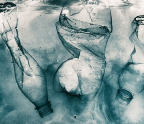Psychological stress has long been linked to cancer. More than 2,000 years ago, Galen, a Greek physician, noted that depressed people were more prone to developing the disease. In 1759, an English surgeon wrote that cancer went along with “disasters in life, as occasion much trouble or grief.”
A German physician named Dr Ryke Geerd Hamer further proved the mind-body cancer connection. Shortly after his son Dirk’s sudden and untimely death, Dr Hamer was diagnosed with testicular cancer. Since his son was in good health in general and had never been seriously ill, Dr Hamer began to wonder if the shocking loss ofhis son was somehow related to the development ofhis own cancer. This hypothesis was just the start of a fascinating scientific journey.
As Dr Hamer, then a head internist at a cancer clinic at the University of Munich, began delving into the history of his cancer patients, he discovered a vital correlation. They had all undergone some form of shocking trauma—which he called “conflict shocks”—prior to diagnosis. He hypothesized that since all bodily processes are controlled by the brain, these acute stressful incidents manifested as disease and malfunction of specific organs. After poring over thousands of patients’ medical records and brain scans, Dr Hamer concluded that every single disease—not just cancer—could be linked back to these conflict shocks.
A common theme
Dr Hamer’s research makes perfect sense. In my clinical experience, I’ve found that stress from ongoing emotional conflicts—bad marriages, negative parent-child relationships or sibling disagreements—plays a crucial role in the development of . You read that






